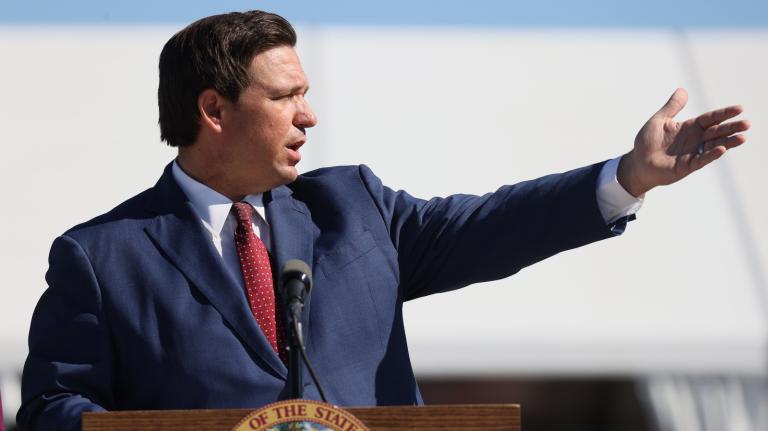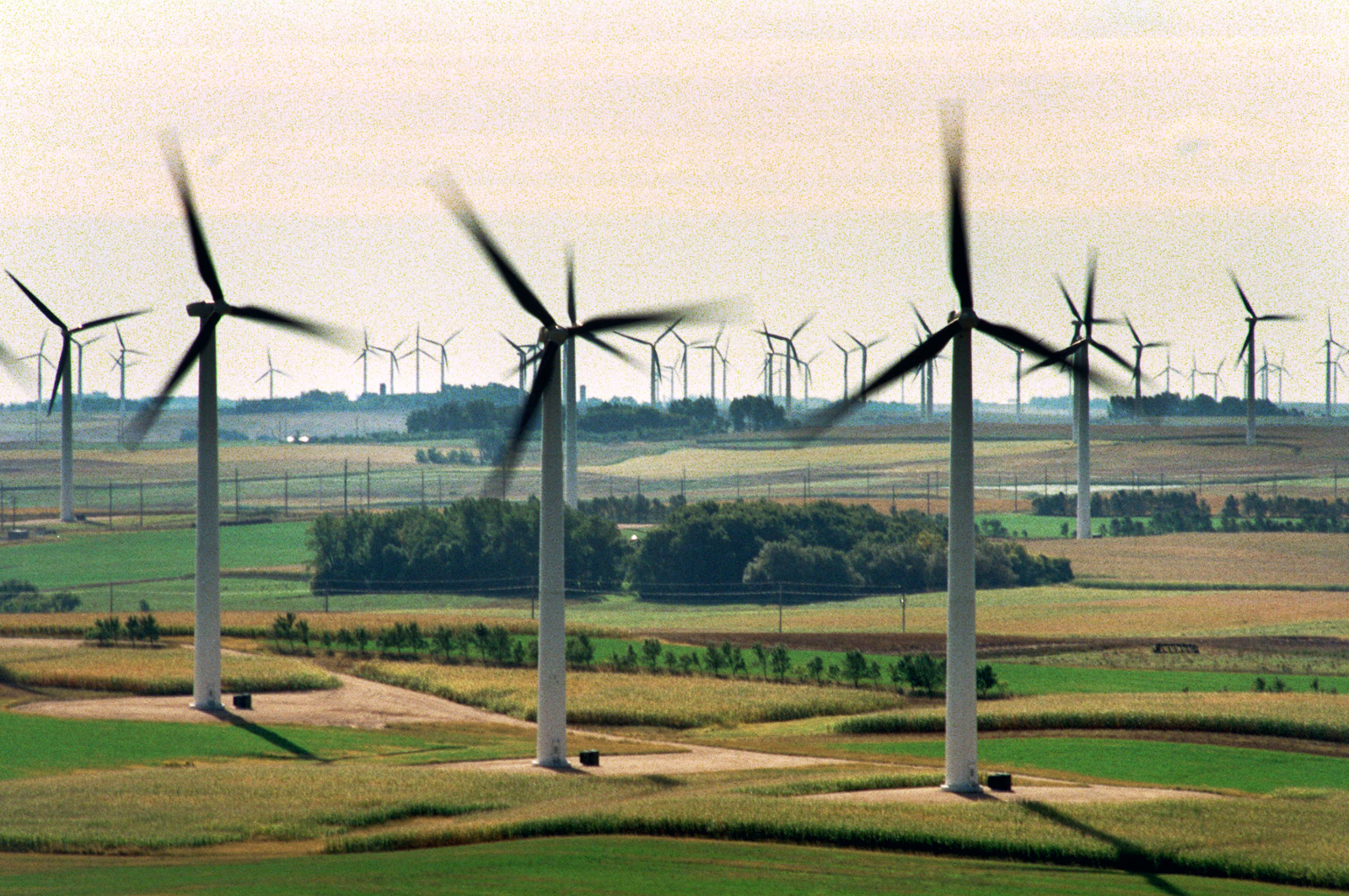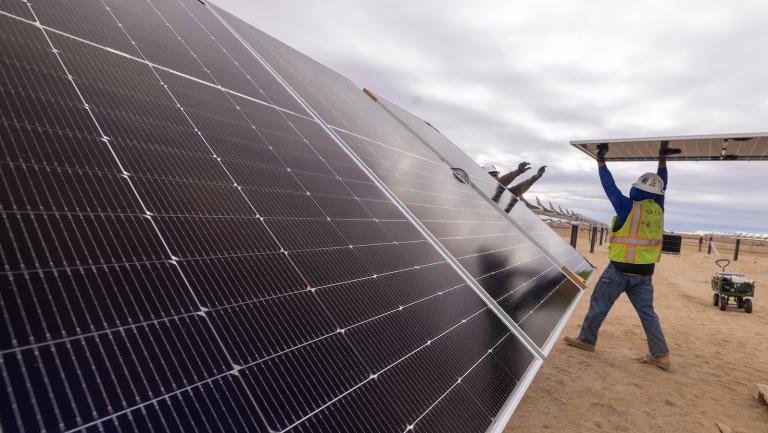Some Midwest states want to decarbonize by 2050. This year’s midterm elections could throw a wrench into these goals.
Next week, voters in Michigan, Minnesota, and Wisconsin will go to the polls and cast their vote for governor. All three states have incumbent Democratic governors who have enacted clean energy plans for the state within the last three years. They are all facing Republican challengers who have ties to the fossil fuel industry or who have campaigned on extending the life of polluting infrastructure.
Experts say that if Republicans win these races, they have the potential to slow down progress toward decarbonization or even dismantle the states’ climate plans altogether.
Wisconsin, a noted swing state in presidential elections, has plans for all electricity consumed in the state to be 100 percent carbon-free by 2050 in accordance with an executive order Democratic Governor Tony Evers signed in 2019. The state’s gubernatorial race has been extremely tight between incumbent Evers and Republican challenger Tim Michels, CEO of one of the largest infrastructure and construction contracting companies in the nation.
Michels, who did not respond to repeated requests for comment, has strong ties to the oil and gas industry. His company has worked on the Line 5 pipeline, Dakota Access pipeline, and the Keystone XL pipeline, and while Michels claims he will divest from the company if elected, that process is a difficult task.
Michigan Governor Gretchen Whitmer, who signed an executive order in 2020 to make the state’s entire economy carbon-neutral by 2050, is being challenged by Trump-endorsed Republican candidate Tudor Dixon, who has professional experience in the media and steel industries. Energy has been a central topic in the race. Whitmer’s order to shut down the Line 5 pipeline — a petroleum pipeline that stretches across Upper Michigan and Wisconsin, including Great Lakes waters — has been a frequent talking point for Dixon, whose campaign did not respond to written questions.
The challenger has campaigned on keeping Line 5 open and enacting safeguards preventing future interference with its operations. Earlier this year, Dixon told a local publication that the Line 5 pipeline is “too important to our economy for liberal radicals like Gretchen Whitmer to sabotage it. When I defeat her, Line 5 will be safe from her attacks.”
Minnesota already had a climate plan before Democratic incumbent Governor Tim Walz took office, thanks to a 2007 law that aims to reduce greenhouse gas emissions in the state 30 percent by 2025 and 80 percent by 2050. But since the state was not on track to achieve those goals, Walz issued an executive order in 2019 to create a new climate change subcabinet to establish new strategies to slash emissions. Walz’s administration also adopted regulations to encourage more electric vehicle sales in the state starting in 2024, modeled after California’s “clean cars” rule.
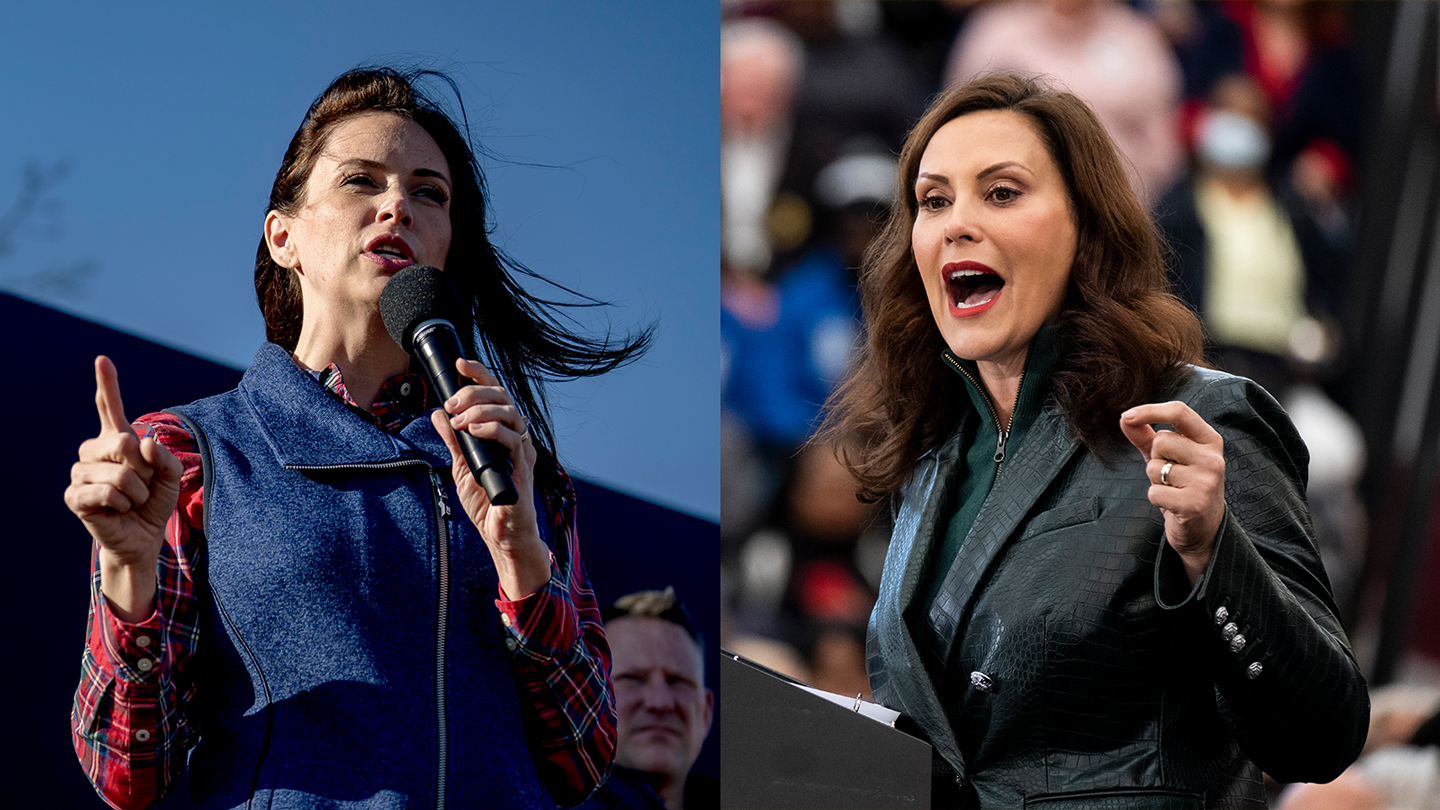
That rule has been met with strong opposition from both the Minnesota Auto Dealers Association and Walz’s midterm opponent, Scott Jensen. The Republican candidate vehemently opposes Minnesota’s clean car rules and has said he will repeal the regulation if elected. Jensen, whose campaign declined to make the candidate available for an interview, has also advocated for coal-fired power plants that are scheduled to close to remain open, including a facility that’s already being converted into a solar project.
Minnesota’s Walz has enjoyed a comfortable lead in the polls, but Michigan’s race has tightened recently, while Evers and Michels have been neck and neck in Wisconsin for weeks. Meanwhile, climate policy experts say that the outcome of this year’s governor’s races will chart the course for these states for years to come.
“These Midwest governors, and the legislatures that are up for reelection in November, are presiding over one of the most pivotal periods of opportunity for action on climate,” Samantha Williams, a senior policy advisor to the NRDC Action Fund and an expert in Midwest climate policy, told Grist.
Williams said that states have an incredible opportunity to clean up their energy mix and create a greener economy, but the clock is ticking. Governors elected this year will be sworn into office in 2023 and hold a four-year term till 2027. That leaves a little over two decades until the 2050 deadline that Michigan, Minnesota, and Wisconsin have set for fully achieving their clean energy plans.
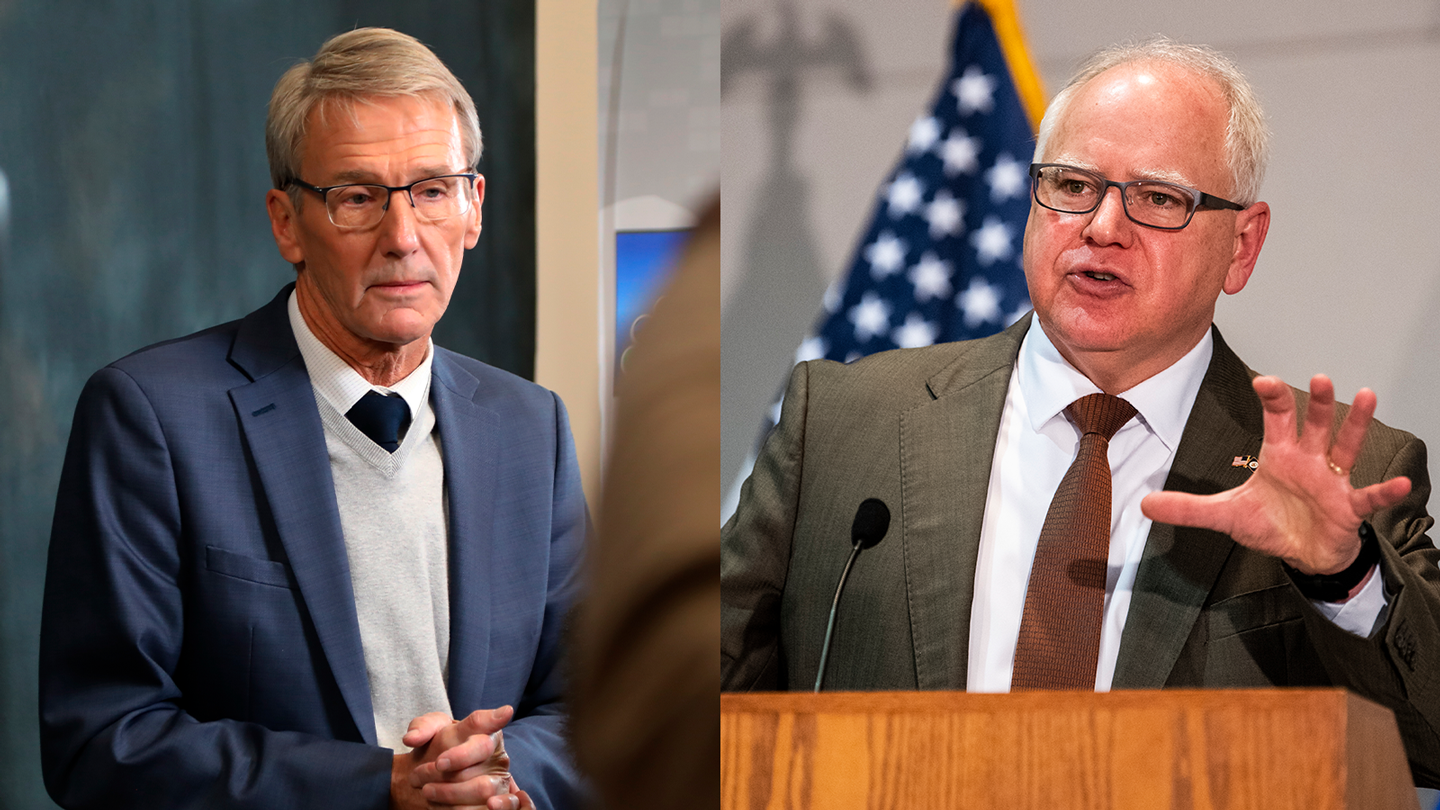
Williams said that governors can exert influence over a state climate action via planning, executive action, and departmental appointments. For instance, governors appoint officials to public service commissions, influential state agencies that regulate energy generation and consumption. Jensen, the challenger in Minnesota’s governor’s race, has said he plans to appoint experts in “base load power” — an industry-friendly euphemism for coal power — to the state Public Utilities Commission and the Minnesota Department of Commerce.
Public service commissions “have a pretty significant amount of control over whether the state will move to clean power fast enough and what that future power generation is going to look like,” Williams said.
The Midwest has already seen a regional shift towards clean energy. Clean energy companies employed more than 714,000 residents of the 12 Midwestern states at the end of last year, according to a report by Clean Jobs Midwest.
“There are some states that are going faster than others, and you see that in the Midwest as a microcosm,” Williams said.
This slow growth is often exacerbated by a political disconnect between the governor’s office and the state legislature. The legislatures in Minnesota, Michigan, and Wisconsin are currently either controlled by Republicans or split between Democratic and Republican control. Divided legislatures can make it difficult to pass climate laws, forcing climate-focused governors to resort to executive orders.
In Wisconsin and Michigan, all of the states’ clean energy goals have been established by executive order. But executive orders are easier for successive administrations to reverse than legislation like Minnesota’s 2007 climate law, or the ambitious climate law that Illinois’ governor signed last year.
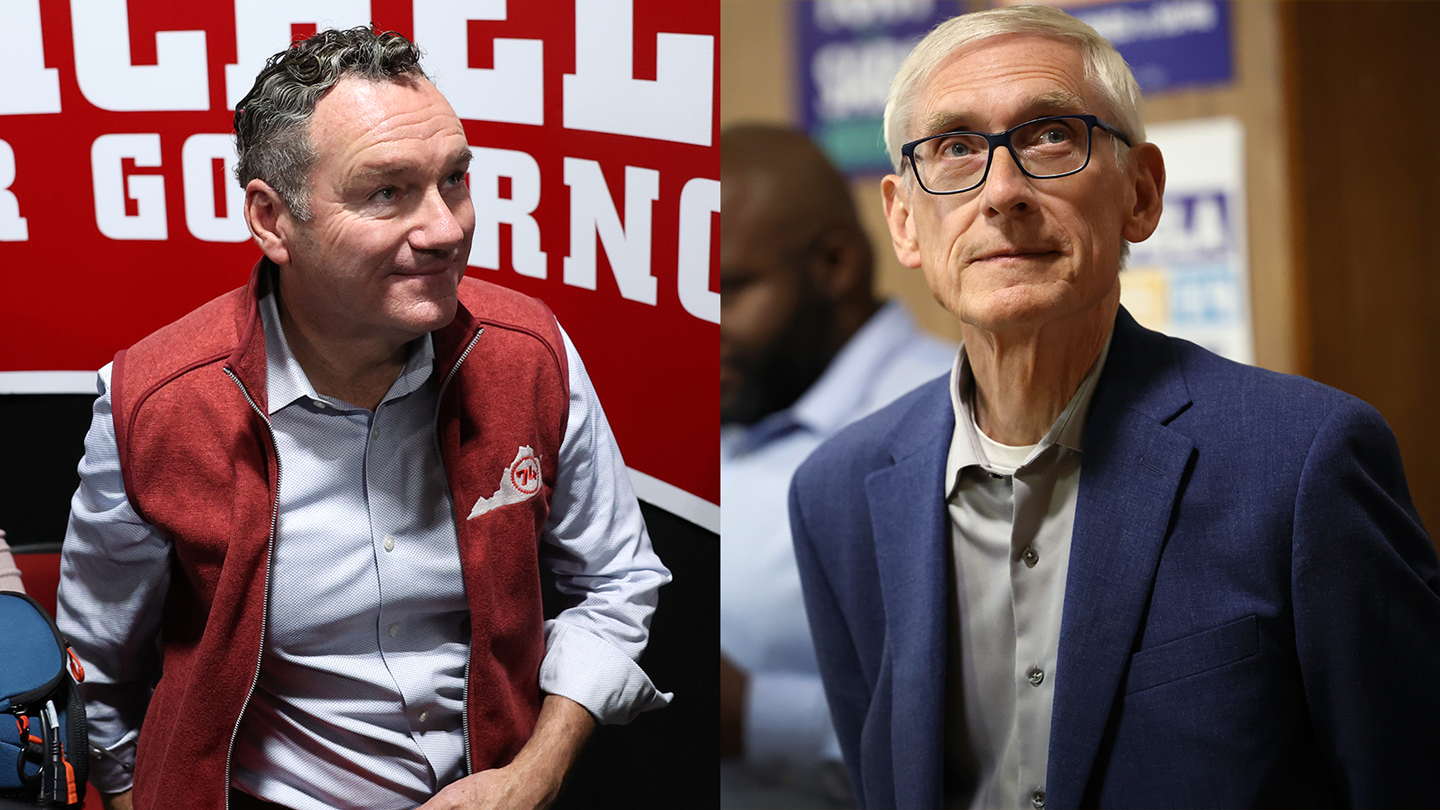
Whether Republican governors roll back climate-related executive orders or just undermine them with hostile appointments, the upshot is the same, according to Kerry Schumann, executive director of the Wisconsin chapter of the League of Conservation Voters: “We don’t make the investments we need to make” in clean energy.
Schumann said that another reason this year’s Midwestern governor’s races are so crucial is that governors will have a say in how funding from the Inflation Reduction Act, the federal climate law passed in August, gets distributed. The law allocates money for states to slash pollution, cut greenhouse gas emissions, train clean energy workers, and more.
“If the state of Wisconsin and other local governments aren’t very conscientious and deliberate about taking advantage of that money, we just completely missed this opportunity to invest in clean energy and to reduce pollution,” Schumann said.
Governors also have the power to work to promote clean energy on a regional level, Schumann pointed out. Recently, a coalition of Midwest governors announced plans to establish clean hydrogen infrastructure in the region and create a network of electric vehicle charging stations across five states. Schumann said she’s concerned that Wisconsin and other Midwest states would not continue to work together on these plans if Republicans take office next year.
David Pelikan, a policy associate for nonpartisan political organization Climate Vote Minnesota, agreed that the consequences of electing a Republican governor could reverberate throughout the region. “We see Minnesota as a regional leader on clean energy issues, and I think losing that leadership role is pretty devastating for climate progress across the upper Midwest,” Pelikan said.
This story has been updated to clarify Samantha Williams’ job title.
